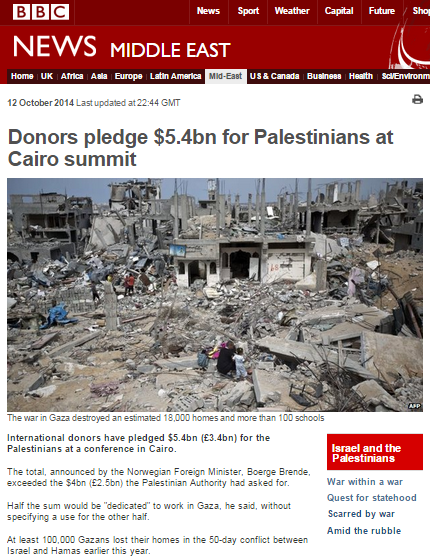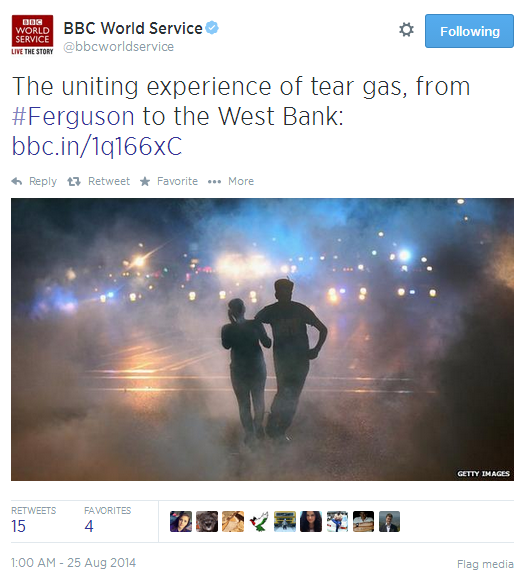On October 1st 2013 the Israeli Prime Minister Binyamin Netanyahu gave a speech at the UN General Assembly which was misreported by the BBC as having “warned against working with the Iranian government.” As we noted here at the time:
“In fact, a significant proportion of Netanyahu’s speech was devoted to the subject of safeguards which should be employed by the international community whilst negotiating with Iran.
“So here is what the international community must do: First, keep up the sanctions. If Iran advances its nuclear weapons program during negotiations, strengthen the sanctions.
Second, don’t agree to a partial deal. A partial deal would lift international sanctions that have taken years to put in place in exchange for cosmetic concessions that will take only weeks for Iran to reverse.
Third, lift the sanctions only when Iran fully dismantles its nuclear weapons program. My friends, the international community has Iran on the ropes. If you want to knock out Iran’s nuclear weapons program peacefully, don’t let up the pressure. Keep it up.
We all want to give diplomacy with Iran a chance to succeed, but when it comes to Iran, the greater the pressure, the greater the chance. Three decades ago, President Ronald Reagan famously advised, “trust but verify.” When it comes to Iran’s nuclear weapons program, here’s my advice: Distrust, dismantle and verify.”
In other words, Netanyahu did not warn “against working with the Iranian government” at all – but he did urge the international community to go about it in a rational and cautious manner.”
On October 31st 2013 the BBC broadcast an edition of its ‘Hardtalk’ programme featuring an interview with Israel’s Minister for Intelligence Affairs and International Relations, Yuval Steinitz. Right at the beginning of that interview (which is worth watching in full if only to gain some insight into the personal views of presenter Stephen Sackur), Steinitz says:
“…Israel is not against the diplomatic negotiations of the P5+1 with Iran. These diplomatic negotiations are going on and off for almost ten years, starting from 2003, and then the Iranians had only 160 centrifuges – today they have close to 20,000. But we are not closing the door to diplomatic solutions: on the contrary. If the United States and the P5+1 will succeed to reach [an] inclusive and satisfactory diplomatic solution, we will be glad to endorse it.” [emphasis added]
[youtube=http://www.youtube.com/watch?v=eCjFjBYe-HA]
The Israeli government’s stance has been made amply clear on numerous other occasions too.
“Ahead of a new round of nuclear talks between Western powers and Iran starting Tuesday, Intelligence and Strategic Affairs Minister Yuval Steinitz said a diplomatic solution was still possible, and said Tehran should discontinue its nuclear weapons program just as Libya did 10 years ago.
Israel will endorse any agreement that ensures Tehran’s inability to create nuclear weapons, including one that would grant the regime the use of nuclear energy for civilian purposes, he said Monday. “We want the Geneva talks to succeed. We don’t close the door on a diplomatic solution,” he said.” [emphasis added]
On November 10th 2013, in an article on the subject of the shooting of an Iranian deputy minister which appeared on the Middle East page of the BBC News website, the BBC – despite having heard the contrary directly from a senior Israeli minister less than two weeks previously – informed its audiences that:
“Peace talks in Geneva have centred on a proposal to freeze the expansion of Iran’s nuclear programme in exchange for relief from tough international sanctions.
Israel, which regards Iran as a security threat, has opposed the talks.” [emphasis added]
That statement can only be construed as another deliberate misrepresentation of Israel’s stance on the part of the BBC.






